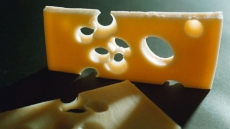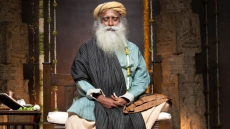Challenging a standard cosmological concept, a team of researchers led by an Indian-origin scientist has found that the universe may not actually be expanding at an accelerating pace as was previously believed.
Back in 2011, the Nobel Prize in Physics was awarded to three astronomers for their discovery, in the late 1990s, that the universe is expanding at an accelerating pace.
Their conclusions were based on analysis of Type Ia supernovae - the spectacular thermonuclear explosion of dying stars - picked up by the Hubble space telescope and large ground-based telescopes.
It led to the widespread acceptance of the idea that the universe is dominated by a mysterious substance named 'dark energy' that drives this accelerating expansion.
In a paper published in the Nature journal Scientific Reports, the team of scientists led by Professor Subir Sarkar of Oxford University's Department of Physics has cast doubt on this standard cosmological concept.
"Naturally, a lot of work will be necessary to convince the physics community of this, but our work serves to demonstrate that a key pillar of the standard cosmological model is rather shaky," Sarkar said.
Making use of a vastly increased data set - a catalogue of 740 Type Ia supernovae, more than ten times the original sample size - the researchers have found that the evidence for acceleration may be flimsier than previously thought, with the data being consistent with a constant rate of expansion.

"The discovery of the accelerating expansion of the universe won the Nobel Prize, the Gruber Cosmology Prize, and the Breakthrough Prize in Fundamental Physics. It led to the widespread acceptance of the idea that the universe is dominated by "dark energy" that behaves like a cosmological constant - this is now the "standard model" of cosmology," Sarkar noted.
"However, there now exists a much bigger database of supernovae on which to perform rigorous and detailed statistical analyses," he added.
gWe analysed the latest catalogue of 740 Type Ia supernovae - over ten times bigger than the original samples on which the discovery claim was based - and found that the evidence for accelerated expansion is, at most, what physicists call "3 sigma". This is far short of the "5 sigma" standard required to claim a discovery of fundamental significance," Sarkar explained.
The researchers hope that their study will motivate better analyses of cosmological data, as well as inspire theorists to investigate more nuanced cosmological models.
"Significant progress will be made when the European Extremely Large Telescope makes observations with an ultrasensitive 'laser comb' to directly measure over a ten to 15-year period whether the expansion rate is indeed accelerating," Sarkar said.




